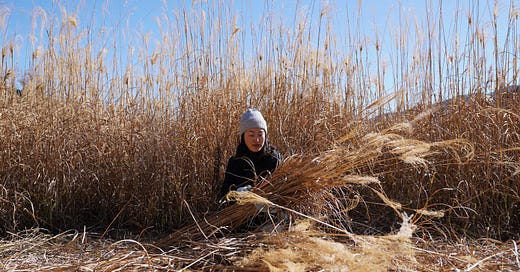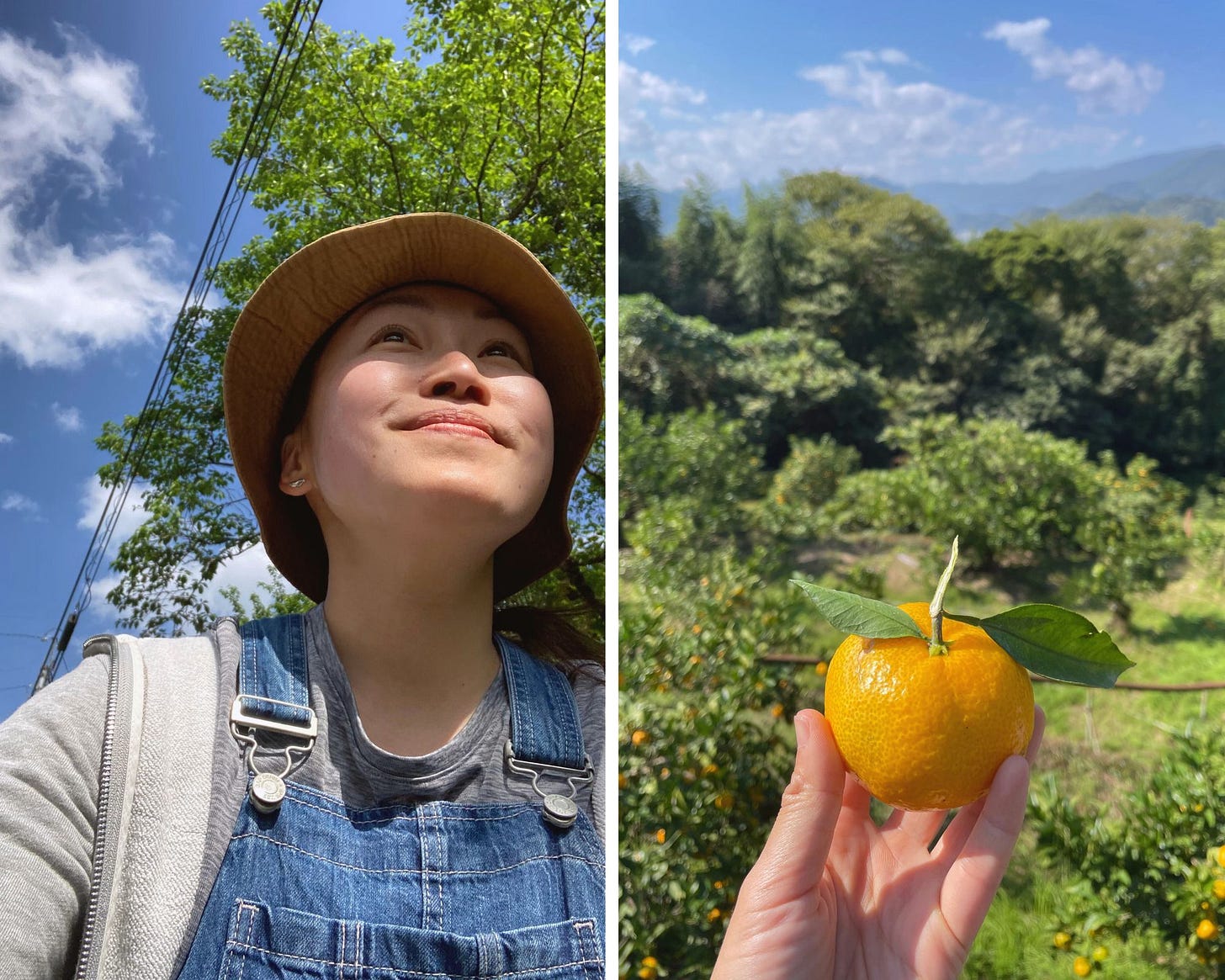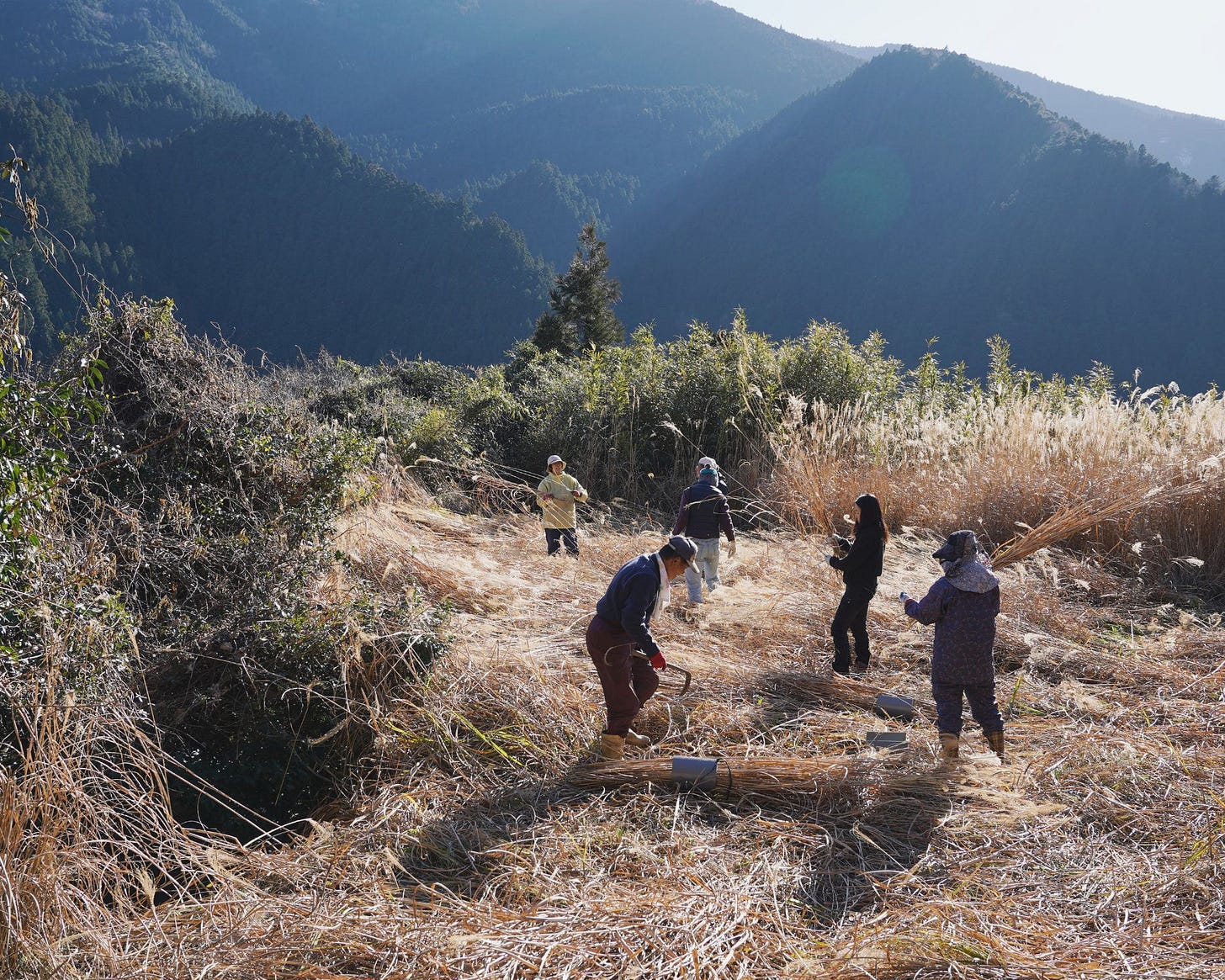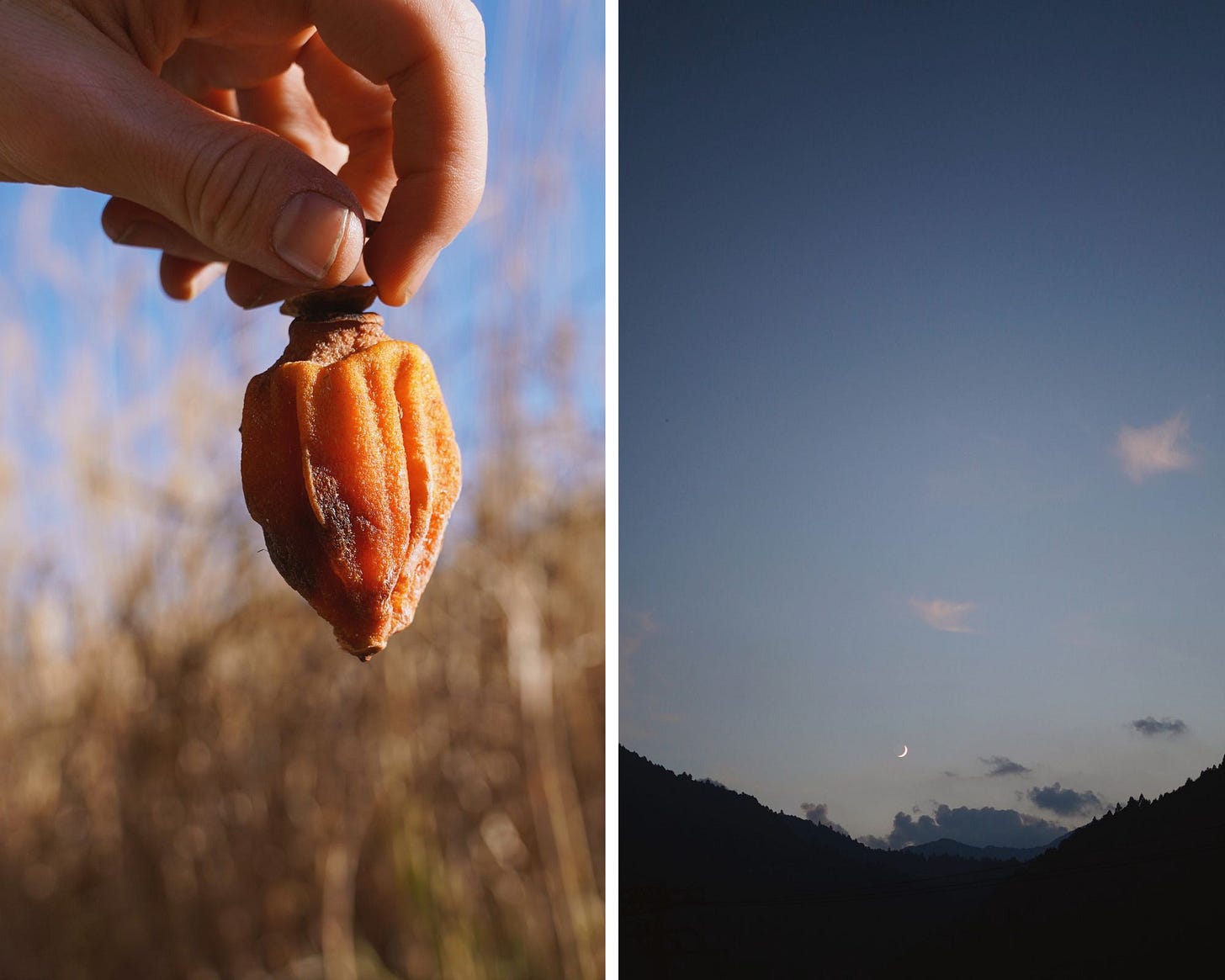It’s easy to romanticize life in the countryside. Even I catch myself romanticizing my own life when I scroll through photos or videos I’ve taken while farming, gardening, in nature, cooking meals — capturing moments of beauty while quietly enduring the harder parts.
The wish for a simpler life tugs at many in a genuine way, so it’s natural for people to see and hear what they want when it comes to rural living. Yet the reality is always more nuanced. I think most people are aware of the complexities and tradeoffs… but that’s the allure of social media, isn’t it?
Choosing to move to the countryside isn’t an escape.
It was a deliberate decision to let go of certain aspects of urban life, particularly the relentless grip of consumerism, overconsumption, and the unyielding demands of capitalism. While efforts to make cities more livable are growing, there are still big gaps in urban and rural living.
And I’m not alone. There is a trend of people who are in their 20s to 40s who are moving to more rural areas. This group of people isn’t relocating to the countryside to retire, as previous generations might have, but rather to seek a healthier, more balanced lifestyle—one that supports their professional work, nurtures their families, and, perhaps most importantly, prioritizes their mental and physical well-being.
Research, census data, and vignettes from the US, UK, and Australia show that since the pandemic, more and more young adults are moving out of cities and to small towns and rural areas. I’m also acutely aware of the privilege of being able to move in the first place. The privileges of such a choice also reinforce my sentiment that I’m making this choice with intention.
In Japan, efforts to reverse urban migration have spanned decades, offering incentives to draw families and individuals to rural areas. Despite this, cities like Tokyo, with over 37 million residents (nearly 30% of Japan’s population), continue to dominate, leaving countless rural villages at risk of fading away. The cultural loss tied to such disappearances is staggering and difficult to fully comprehend.
I think it’s courageous to choose an unconventional path. In Japan, where conformity pervades, the decision to live differently can feel like an act of rebellion. The Japanese saying, “the nail that sticks out gets hammered down” reflects the societal pressure to fit in.
To live in the countryside, I’ve chosen a life that aligns with my values—living (or trying to live) more consciously and staying close to nature. While this choice brings its share of challenges, it also offers a unique opportunity to redefine what truly matters.
The other day, I helped cut bundles of straw for re-thatching a traditional Japanese straw roof. This simple act of lending a hand to my community served as a meaningful reminder of why I chose this life.
Growing up in a city, I took modern conveniences for granted: takeout food, quick transit, and endless choices. Too many choices. The abundance of options in urban living was both a luxury and a distraction. The convenience of buying what I want, whenever I want, has been replaced by deliberate decisions and resourcefulness.
Now, I drive over an hour to reach a proper grocery store, and what I can’t buy, I often make myself. When I crave Chinese or Thai food, I try to recreate it from memory, though it rarely compares to the real thing. Still, the tradeoff feels worthwhile, like fresh vegetables grown with care, made into a simple and wholesome meal, have a value all their own. But there might be a time when the tradeoffs are harder to justify—a hospital is also about 1 hour away. How do I think about these tradeoffs with ageing?
In reflecting on an unconventional life, I also think of a recent Substack that I read (‘I didn’t want a job’ by
) where she too reflects on an unconventional life in pursuit of a creative life.This resonates deeply.
“We live in a capitalist world, you will need money to live. But there are so many ways you can rebel against a system that wants you to be compliant and stagnant and unfulfilled. There are ways you can reclaim your life and demand magic from it. You don’t have to work in the way society is asking you to. In fact, it is imperative that you don’t.”
There’s a profound difference between being happy in life and being happy with life. Laurie Santos, a Yale professor who teaches a popular course on The Science of Happiness, talks about this distinction. The former (happy in life) is a fleeting moment of joy, a sense of contentment in the present. The latter (happy with life) is about finding acceptance in your choices, your direction, and your circumstances—even when they include difficulties.
And so, challenges and all, I wouldn’t trade the life I’ve chosen for.
I thought I’d be writing about the slow, quiet winter I’m experiencing here in Kamikatsu, but these thoughts kept bubbling up, so here we are.
Do any of you live in the countryside or somewhere rural? If you do, what are some of the challenges you face? Or is it something you dream about? I’d love to hear your thoughts 🌾
Until next time,
Kana










Thank you for sharing your thoughts about the tradeoffs., Kana. I live in Tokyo’s city center — within walking distance of Shinjuku Station (the world’s busiest train station) — and have been looking for a place in the countryside of Tokyo’s mountainous hinterlands for many years.
But the tradeoffs may be too large for me. On my site and Substack Old Photos of Japan I write about daily life in Old Japan, which requires countless hours of research at libraries and archives. I must stay within a certain distance from central Tokyo to accommodate this. Enlarging my collection of vintage images of Japan also requires a city environment.
Additionally, I wrestle with health issues that require frequent hospital visits and doctors with specialist knowledge. Last August I was taken to hospital by ambulance twice within a single week. The second time I could barely breathe. Waiting for the ambulance for longer than I did and then traveling for an hour would have been sheer torture.
Now I live within walking distance of several major hospitals. I doubt living far away from them is realistic.
And I live by myself, which increases the risk of living in the countryside. The additional burden of taking care of an ’estate’, no matter how small, and the community requirements of the Japanese countryside, would likely be too much for a single person with my health limitations and the many hours I need for researching my articles and books.
The more I consider my particular situation and the extreme tradeoffs this requires, the more I realize that perhaps moving to the countryside — no matter how much I want to — is perhaps not a choice available to me.
Which makes reading about your experiences in the countryside a true joy, Kana. Such is the wonder of reading — one gets to be exposed a little to experiences that are otherwise unattainable.
Hello there from a recent subscriber!
I’ve had similar thoughts to this bubbling up to the surface for me, too. Lately, I’ve been dreaming about returning to Nagasaki to fulfill a decade-long dream of living in the slopes (a taste of which I had as a university student when I lived in an apartment behind Suwa Shrine. No car access and no shower. We had to use plastic buckets for our baths).
I loved the little inconveniences of living in Nagasaki, despite it being a city. Carrying my groceries up the hill every day in the peak summer months was a rite of passage. I think your concerns about how you’ll feel when you get older are valid, but I can’t help but think of the women in their eighties with their white hair who would pass me by on the hill, moving at lightning speed because they’d been living in the slopes as for decades while I was catching my breath. Having a sound mind and staying healthy truly is a blessing.
On the flip side, you’ve just made me realize just how convenient my life is here in Miyazaki. I live in a high-rise apartment near the city center and everything truly is just one click away. All my favorite restaurants are less than 10 minutes walk away and it’s flat where I live. Thank you for giving me some things to think about, Kana. It’s good to check in and see if I’m over romanticizing things sometimes!